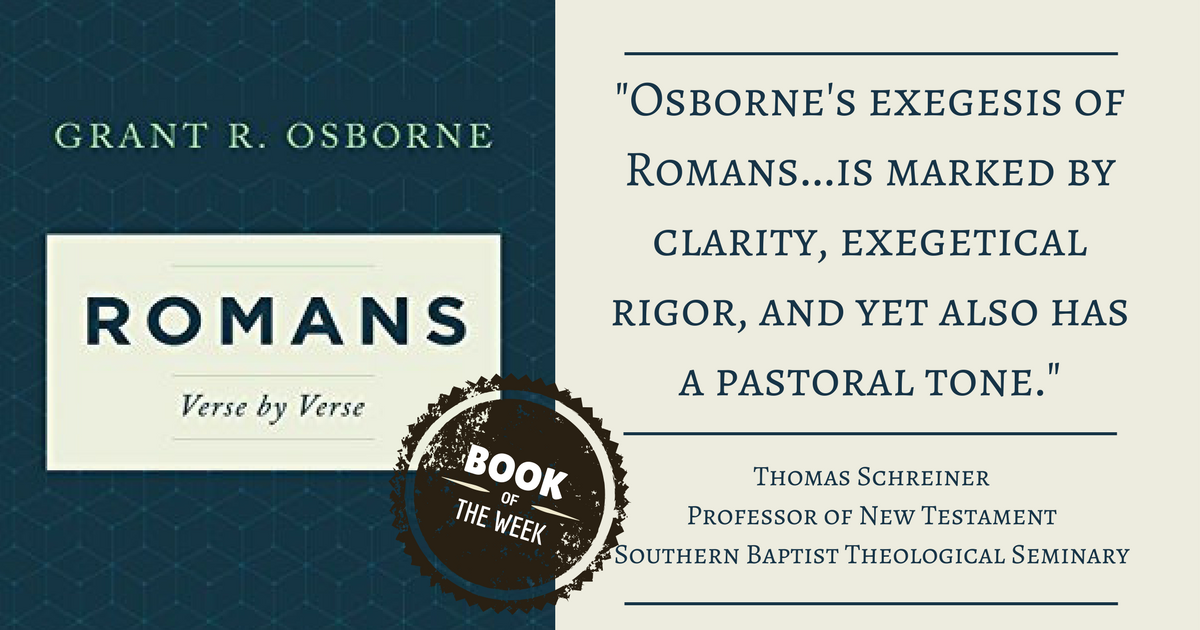Someone close to me is currently working through Romans in Bible Study Fellowship. This program involves reading the passage for the week along with some simple commentary and reflection questions for comprehension. It’s a great program, but one problem with simple commentary is that it can be simplistic. Complex issues can be glossed over with a simplistic explanation of one view without even mentioning the others.
In comes Grant Osborne’s new commentary on Romans. He has written one before in 2010 in the IVPNTC series, so he definitely has the background work finished and was well-situated to write this new commentary for pastors and laymen. This new Romans commentary, published by Lexham in the Osborne New Testament Commentaries series, is 500 pages of simple exposition with rigorous exegetical and theological foundations.
Osborne has said that this series is what he wants to do with the rest of his writing career, because he wants to help normal people read the Bible better. I would contrast this series with N. T. Wright’s For Everyone series (which also provides simple expositions for laypeople; see his Romans volume) by pointing to the different theological perspectives Wright and Osborne have on many issues. Osborne is more traditional and espouses views that would be more familiar to laymen and more easily understood. Wright’s positions on the New Perspective, anti-imperialism, the meaning of justification and righteousness, and many other issues make his commentary series less useful for laymen than Osborne’s.
Osborne’s Romans commentary is 500 pages (but with smaller pages and decently large font), so it is meaty enough to provide the reader with a very good understanding of Romans while not becoming overwhelming. In contrast with the simplistic explanations of the Bible Study Fellowship guide to Romans (which is very useful but only sometimes too simplistic), Osborne’s commentary would help the reader be more nuanced about their thinking.
For example, on Rom 8:29, Osborne explains the Calvinistic and Arminian interpretation of the relationship between foreknowledge and predestination. He does so without any malice or bias and tries to present both views fairly… in a paragraph each! He then humbly explains the view he holds and allows the reader to consider the problem further and decide for themselves.
Again, in Rom 3:25, Osborne explains that ἱλαστήριον traditionally refers to propitiation (the removal of God’s wrath by sacrifice) but some modern scholars have preferred to understand the word to refer to expiation (the removal of sin). He notes that the context of chs. 1-3 refers throughout to God’s wrath so trying to avoid the connotation in ἱλαστήριον is not helpful. He boils a complex lexical argument down to a paragraph and provides a concise, but compelling reason for his position. Such facility in writing for laymen is rare.
These commentaries are definitely worth checking out and would be put to good use in the libraries of students, pastors, laymen, and even church libraries where members could access trustworthy but readable commentaries.
Preview or buy it here.

